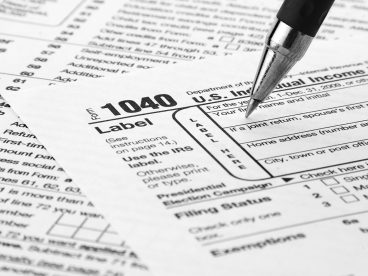Last updated January 16, 2024
Not everyone is required to file their taxes. Whether you need to file your taxes depends on four factors: your income, filing status, age, and whether you fall under a special circumstance.
Even if you aren’t required to file taxes, you may want to file for tax credits and other benefits.
Income
The IRS sets new tax filing thresholds each year. If your 2023 gross income was greater than the amounts listed below, then you are required to file taxes.
Gross income is any income you pay taxes on. Your age is determined by how old you were on December 31, 2023.
| Filing Status | Gross Income (Taxpayers under 65) | Gross Income (Taxpayers over 65) |
| Single | $13,850 | $15,700 |
| Head of Household | $20,800 | $22,650 |
| Married Filing Jointly | $27,700 (both spouses) | $29,200 (one spouse) |
| $30,700 (both spouses) | ||
| Married Filing Separately | $5 | $5 |
| Qualifying Widow with Dependent Child | $27,700 | $29,200 |
If you can be claimed as a dependent on someone else’s tax return, your tax filing requirements are different. If that is the case, read up on 2023 filing requirements for dependents.
Other circumstances that require you to file
If you are self-employed, you are required to file taxes if you earned more than $400 in self-employment income.
If you pay special taxes, then you must file even if you don’t meet the filing threshold. Special taxes include additional taxes on qualified retirement plans or when you must pay taxes on tips you did not report to your employer.
In addition, you must file taxes if you or anyone in your household enrolled in health coverage through the Healthcare.gov Marketplace and you received premium tax credits in 2023.
If you have special tax considerations, you may want to use the IRS’ interactive tool to determine whether you need to file.
You may want to file even if you’re not required to
If you’ll receive a tax refund, you should file a tax return even if you’re not required to.
If you’re not required to file taxes but you withheld taxes throughout the year, you can get that money back when you file your tax return.
You may also be eligible for refundable tax credits that will give you a tax refund even if you don’t owe taxes. These credits include the Earned Income Tax Credit, the Child Tax Credit, and the American Opportunity Tax Credit.
If you’re not sure if you withheld taxes or qualify for tax credits, you may want to file a tax return anyway to avoid missing out. You have up to three years to file previous years’ taxes and/or claim past tax credits.









